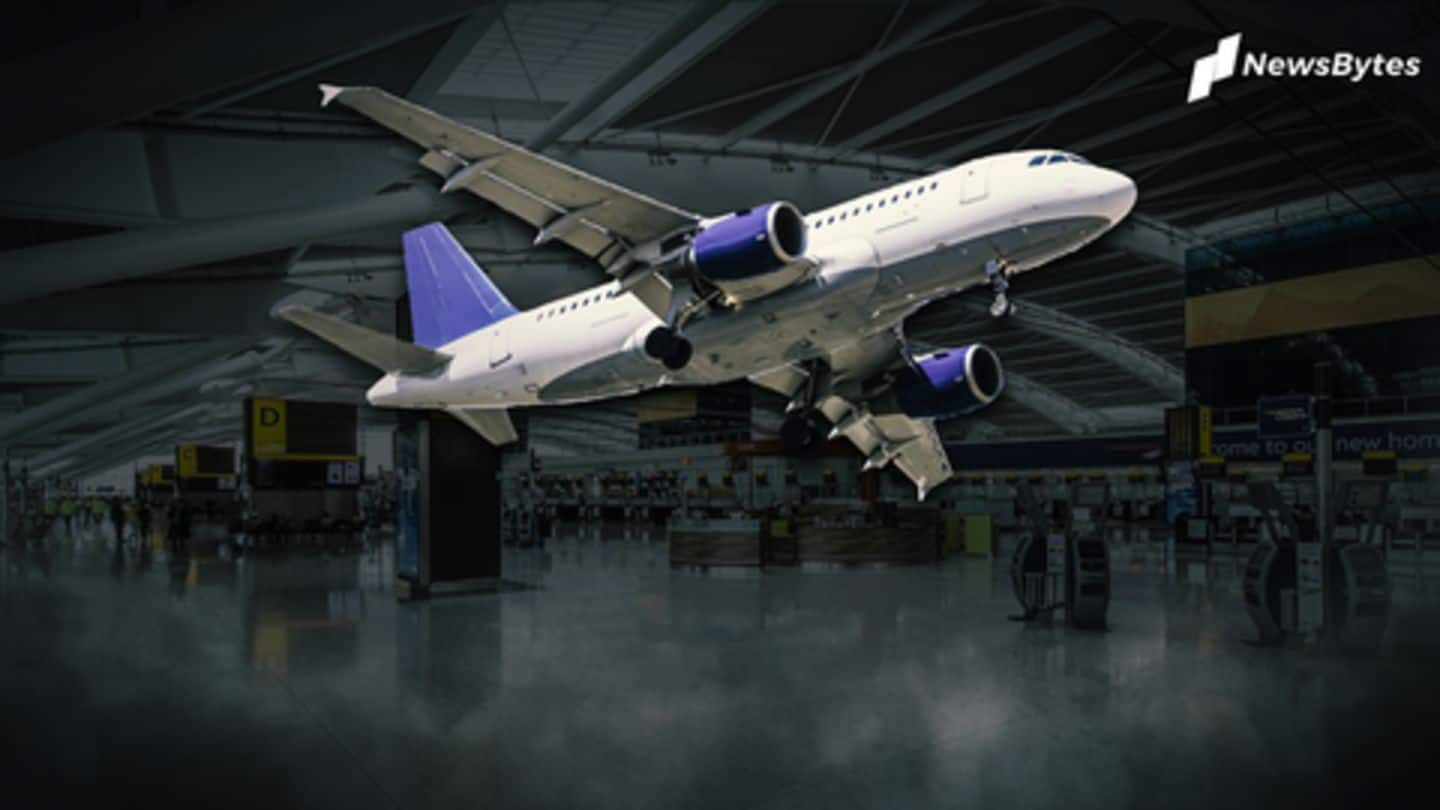
Airlines suffered turbulence due to coronavirus: Understanding what future holds
What's the story
The globalized world was brought to a screeching halt with the onset of coronavirus pandemic.
By April, 90% of the world's population lived in countries having coronavirus-related travel restrictions. Large airlines are staring at oblivion, fully aware of the fact that even after curbs are abolished, traveling will never be the same again.
Let's attempt to understand how COVID-19 will change the airline industry.
Context
Air travel suspension became the first step to combat coronavirus
Coronavirus, which emerged from China in December last year, is highly contagious and transmitted through humans. With the death toll climbing past 300,000 globally, countries are scrambling to minimize the damage.
The first step towards this was suspending international travel, which led to airplanes being parked and crew being benched, translating to humongous losses for the industry.
There's fear the industry might never recover.
India
India's airline industry faced lull in pre-coronavirus days too
In India, all flights, domestic and international, have been suspended since March 25, when the first lockdown started. Even before this, the Indian aviation industry wasn't booming, with Jet Airways shuttering its operations last year.
Subsequently, its laid-off employees took to streets demanding compensation.
Meanwhile, the Centre's grand plans to privatize Air India have also not been making any headway for several months now.
Loss
Indian aviation industry could lose Rs. 24,000-25,000 crore
According to CRISIL, a global analytics company, India's aviation industry will incur a loss of Rs. 24,000-25,000 crore this fiscal. The number could swell if the travel restrictions remain in hubs like Mumbai, Delhi, Chennai, and Kolkata.
While airlines will contribute to 70% of these losses, airport operators could register an Rs. 5,000-5,500 crore of loss and airport retailers could lose Rs. 1,700-1,800 crore.
Data
Q1 is a stronger period, but was mired with restrictions
These numbers are scary, considering how the industry shot up in the post-war era, generating employment and logging profits.
CRISIL said that for the aviation industry to bounce back, it will need at least 6-8 quarters.
For Indian carriers, Q1 is a stronger period, but with most restrictions placed in that quarter, experts believe the situation will improve only in Q3 of FY21.
Air traffic
Air traffic will be at 30% in best-case scenario
By releasing a draft Standard Operating Procedure (SOP) on Tuesday, the Civil Aviation Ministry indicated it was looking at restarting operations soon (they could start as early as May 18).
However, in the best-case scenario, the air traffic will be at 30%.
Airports Authority of India said the operations will be reduced drastically to maintain hygiene standards and incorporate social distancing.
International impact
Delta Airlines CEO asked employees to prepare for 'sluggish' recovery
Internationally too, operations have taken a backseat. In a letter to employees, Delta Airlines Chief Executive Officer, Ed Bastian, said, "I estimate the recovery period could take two to three years."
According to the International Air Transport Association (IATA) survey, at least 40% of fliers could wait for at least six months after the virus is contained to board flights again.
Prices
Airlines could charge more for meals, legroom, etc.
One approach towards the long recovery could be charging more from passengers. Volodymyr Bilotkach, who wrote the book, The Economics of Airlines, said airlines could start charging more for baggage, legroom, and meals.
In Asia, IATA claims, airlines were making merely $3 profit per customer. But for now, prices might not shoot up as airlines would try to vie for the handful of fliers.
SOP
Mask-wearing passengers will become a common sight at airports
The way passengers travel would also change in the post-coronavirus era. According to the draft SOP of Civil Aviation Ministry, fliers will be required to wear masks at all times and maintain social distancing.
Some suggest keeping the middle seat vacant, but the ministry is undecided on it yet.
Airports were also told to sanitize their premises frequently and minimize human interaction.